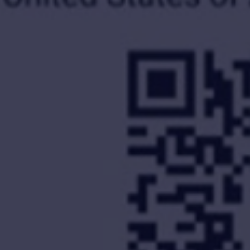
1. They place major limits on freedom
Before the pandemic, citizens in many countries were able to freely visit bars, cinemas, restaurants, sporting events, and more without restriction.
Vaccine passports erode this freedom by requiring people to show proof that they’ve been vaccinated or recently tested negative for COVID-19 before they can participate in these same activities.
Essentially, vaccine passports create a two-class system. Those with vaccine passports are given the freedom to enter any business premises and full access to all the products and services that these businesses provide. Those who refuse vaccine passports have these freedoms stripped away and are denied access to a wide range of important products and services.
2. They erode privacy
Vaccine passports often collect biometric data and connect with cloud-based databases that contain sensitive personal information such as vaccination status and COVID-19 test results.
While some systems have introduced security measures to prevent this data from getting into the wrong hands (such as using random long numbers as identifiers), other systems have been shown to be lacking. For example, there have been reports that New York’s vaccine passport system has incredibly lax security protocols, making it easy for a random individual to steal your data.
The implementation of other digital coronavirus tracking systems has also shown that when these types of systems are introduced, the data they collect and store is often shared with numerous third parties. For example, in the UK, data that was collected to comply with its contact tracing law ended up being sold to third parties and a new law was introduced that allowed the police to access data of people who are self-isolating.
And regardless of the security protocols that are in place, digital health records are at constant risk of being breached. Every year, millions of patient records are exposed in data breaches.
Outside of the digital data privacy concerns, vaccine passports also publicly expose some health data by design. Everyone who enters a premises that deploys vaccine passports is publicly revealing details of their vaccination status or health status to those around them.
3. They give more power to institutions that have restricted freedom and privacy during the pandemic
Governments and tech companies have used the pandemic to restrict people’s movements, police what they can say online, and harvest their personal data.
Vaccine passports give these institutions even more power to continue down this path and exert an unprecedented level of control over their constituents.
Governments gain almost complete over people’s movements because they can set the criteria that dictates who is allowed to travel and enter business premises.
The tech companies who are contracted to create and maintain vaccine passports also benefit greatly because users are forced to use their technology, hand over their data, and abide by their rules.
4. They pave the way for more invasive measures
Vaccine passports introduce digital infrastructure that can be used to restrict people’s access to products and services based on any criteria. For now, this criteria is related to coronavirus vaccine status and test results but in the future, the criteria could be greatly expanded.
The growth of China’s social credit system highlights how vaccine passports could rapidly evolve into a sinister digital surveillance system. Since its introduction in 2009, this system has become deeply ingrained in China and uses a wide range of factors to deny millions of citizens access to train and plane tickets. Something as minor as playing loud music on a train or jaywalking is all it takes for a Chinese citizen’s social credit score to be lowered.
What makes this potential future even more chilling is that public figures such as former UK Prime Minister Tony Blair and the Chinese government are calling for a global vaccine passport scheme. If such a scheme were introduced, it would mean one system would be able to set the criteria that dictate freedom of movement for the entire world.
5. They’re unnecessary
The current COVID-19 vaccines are allegedly up to 95% effective at protecting against the coronavirus with symptoms which means that anyone who wants a vaccine can get a high level of protection from the virus.
Coronavirus cases and deaths in countries with a high level of COVID-19 vaccine uptake have greatly declined. For example, in Israel and the UK (the top two countries in terms of vaccine uptake), cases have dropped by 79% and deaths have dropped by 90% since they began their COVID-19 vaccine rollouts.
Yet even though vaccinated people have a very low risk of contracting the virus and the spread of the virus has been greatly reduced in countries with a high level of vaccine uptake, supporters of vaccine passports insist that this freedom-restricting technology is necessary to slow the spread.
Not only does the data suggest that the spread of the coronavirus is slowing without vaccine passports but making a negative COVID-19 test result one of the vaccine passport criteria also reduces their effectiveness.
No test is 100% accurate which means there will be false positives (which result in people being denied access to premises when they don’t have COVID-19) and false negatives (which result in people given access to premises when they have COVID-19).
